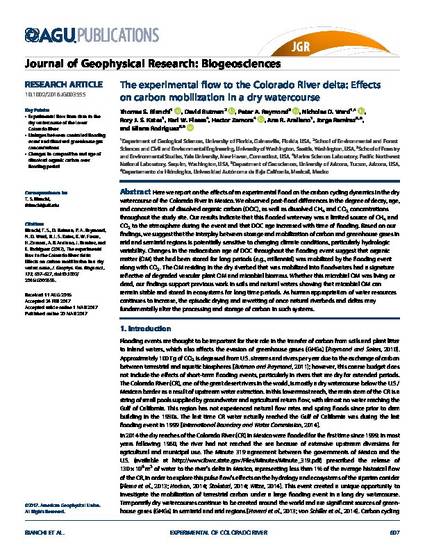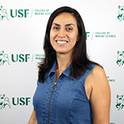
- dry watercourse,
- carbon cycling,
- mobilization,
- flooding,
- greenhouse gases,
- Colorado River
Here we report on the effects of an experimental flood on the carbon cycling dynamics in the dry watercourse of the Colorado River in Mexico. We observed post-flood differences in the degree of decay, age, and concentration of dissolved organic carbon (DOC), as well as dissolved CH4 and CO2 concentrations throughout the study site. Our results indicate that this flooded waterway was a limited source of CH4 and CO2 to the atmosphere during the event and that DOC age increased with time of flooding. Based on our findings, we suggest that the interplay between storage and mobilization of carbon and greenhouse gases in arid and semiarid regions is potentially sensitive to changing climate conditions, particularly hydrologic variability. Changes in the radiocarbon age of DOC throughout the flooding event suggest that organic matter (OM) that had been stored for long periods (e.g., millennial) was mobilized by the flooding event along with CO2. The OM residing in the dry riverbed that was mobilized into floodwaters had a signature reflective of degraded vascular plant OM and microbial biomass. Whether this microbial OM was living or dead, our findings support previous work in soils and natural waters showing that microbial OM can remain stable and stored in ecosystems for long time periods. As human appropriation of water resources continues to increase, the episodic drying and rewetting of once natural riverbeds and deltas may fundamentally alter the processing and storage of carbon in such systems.
Journal of Geophysical Research: Biogeosciences, v. 122, issue 3, p. 607-627
©2017. American Geophysical Union. All Rights Reserved.
Available at: http://works.bepress.com/anaarellano/7/
